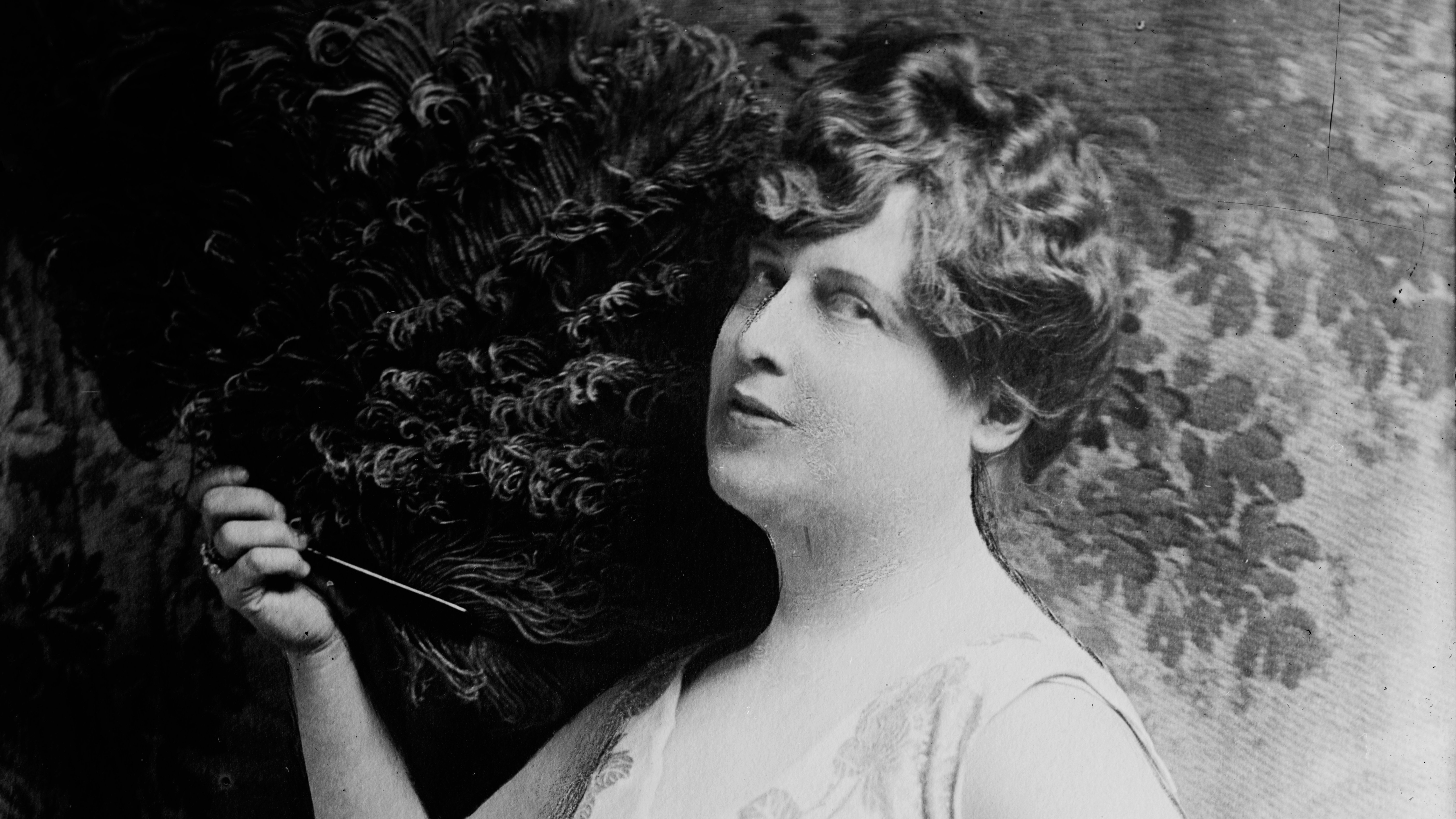
Florence Foster Jenkins
Singer Florence Foster Jenkins couldn’t carry a tune in a bucket. Yet, she made her Carnegie Hall debut to a completely sold-out house on October 25, 1944. In fact, tickets were so in-demand that the night of the performance, 2,000 people hoping to grab seats to hear Jenkins were turned away.
While classical music lovers have known Jenkins and her unique voice for years, this year her “art” will reach larger audiences than ever. A new comedy-drama film, Florence Foster Jenkins, explores the life of the “the worst singer of all time” and stars the “best actress of her generation,” Meryl Streep.
But who was Florence Foster Jenkins?
One of the people who knew Jenkins best was her long-time accompanist Cosmé McMoon. If behind every great singer is a great accompanist, behind every terrible singer is a terribly patient accompanist, like McMoon.
McMoon, born Cosmé McMunn, began collaborating with Jenkins in the late 1920s and worked with her until her death in 1944. Who better to spill the dirt on the tone-deaf diva than him?
Below, hear McMoon describe why “every number was memorable the way she performed it” and offer a first-hand account of her sold-out Carnegie Hall appearance.
Interestingly, though Jenkins struggled as a singer, she was a successful pianist in her youth. She trained in her native Pennsylvania and even went to perform at the White House while Rutherford B. Hayes was in office.
Jenkins wanted desperately to pursue a career in music though was dissuaded by her parents. Eventually she as able to follow her dreams of being a diva when they both passed away (years apart), leaving her with a substantial inheritance.
One reason Jenkins may have had technical problems both producing and hearing sound? Syphllis. She contracted the disease from her first husband, Dr. Frank Thornton Jenkins, whom she married in 1885.
Though she did not stay with her first husband for long, she retained his last name and the disease for the rest of her life. Not only did syphilis likely cause serious damage to Jenkins’s central nervous system, she also likely suffered from debilitating side-effects from the only treatments available to her at the time: mercury and arsenic.
Curious to hear Jenkins yourself? “Enjoy” her performance of the notoriously challenging coloratura aria “Der Hölle Rache” from Mozart’s The Magic Flute, below.






